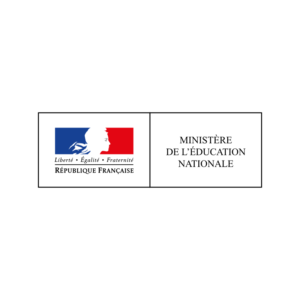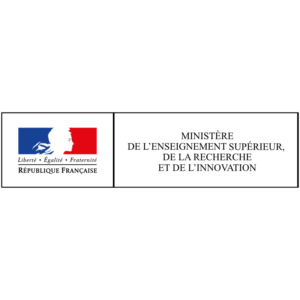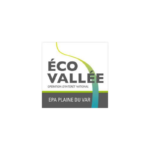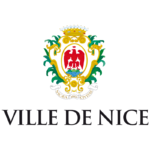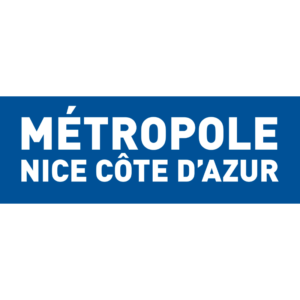5th “Smart Data-Smart Cities” International Conference
Online conference September 30-October 2, 2020
PRELIMINARY PROGRAM – Version 1.0
* Timetable is given in Paris time (CEST)
Wednesday, September 30
Morning
9:00 – 10:30
Opening session
via Zoom
9:00
Opening ceremony
9:15
Invited speaker: Dr. Karine Zeitouni, University of Versailles, France: Urban Data Analytics.
10:15 – 10:30
Break
10:30 – 12:30
Smart Urban Environment
via Zoom
|
25 The Use of 3D Geovisualization and Crowdsourcing for Optimizing Energy Simulation. Sabo Kwada Sini, Rosanny Sihombing, Pithon Kabiro, Thunyathep Santhanavanich and Volker Coors (Germany). |
28 Flood-Prepared: A Nowcasting System for Real-Time Impact Adaption to Surface Water Flooding in Cities. Stuart Barr, Stephen Johnson, X. Ming, Maria Peppa, Na Dong, Zhenyu, Craig Robson, Luke Smith, Luke, Philip James, Darren Wilkinson, Sarah Heaps, Q. Laing, Wen Xiao, Richard Dawson and Ranjiv Ranjan (Australia, UK).
34 Making smart urban decisions: the niche of a parametric spatial model to balance the needs of urban stormwater management and human wellbeing. Jing Jia, Scott Hawken and Sisi Zlatanova (Australia).
19 Integration of Heterogeneous Coronavirus Disease COVID-19 Data Sources Using OGC SensorThings API. Thunyathep Santhanavanich, Chaeyun Kim and Volker Coors (Germany).
Wednesday, September 30
Afternoon
14:00 – 16:00
Smart Urban Planning
via Zoom
16 Smart City Development Strategy’s Profile: Use Case Modelling Based on Simplicial Complex Hypergraphs. Yolène Berrou, Eddie Soulier, Philippe Calvez, Babiga Birregah, Philippe Vidal, Emmanuel Dupont, Bruno Carballa, Guillaume Blot and Maxime Guery (France).
23 Precinct scale living laboratories: Case study of Randwick Living Lab. Eline Punt, Aida Afrooz and Chris Pettit (Australia, The Netherlands).
14 Challenges in Data-Driven Policymaking: Using Smart City Data to Support Local Retail Policies. Ruben D’Hauwers, Koen Borghys, Jorre Vannieuwenhuyze, Nils Walravens and Bram Lievens (Belgium).
35 Smart Data for Smart City Morphology: The Case of Meridia Neighborhood in Nice. Matteo Caglioni, Giovanni Fusco and Alessandro Venerandi (France).
16:00 – 16:15
Break
16:15 – 17:45
3D
via Zoom
24 3D Safe Routing Navigation Application for pedestrians and cyclists based on Open Source Tools. Thunyathep Santhanavanich, Patrick Würstle, Jan Silberer, Verena Loidl, Preston Rodrigues and Volker Coors (Germany).
32 3D Building modelling for Indoor navigation system for users with different physical mobility conditions Yeimy Maryury Montilla Montilla and Camilo Leon (Colombia).
13 Mobile Laser Scanning in Highly Urbanized Area – A Case Study in Sofia. Christina Mickrenska-Cherneva and Alexander Alexandrov (Bulgaria).
Thursday, October 1
Morning
9:00 – 10:30
Machine Learning
via Zoom
03 Learning Geographical Distribution of Vacant Houses Using Closed Municipal Data: A Case Study of Wakayama City, Japan Hiroki Baba, Yuki Akiyama, Tomoya Tokudomi and Yosuke Takahashi (Japan).
18 Spatial Planning Information Processing with Use of Machine Learning Methods. Iwona Kaczmarek, Adam Iwaniak, Aleksandra Świetlicka, Mateusz Piwowarczyk and Francis Harvey (Poland).
21 « I know how you feel » – Predicting emotions from sensors for assisted pedelec experiences in smart cities. Sven Schneider, Habiburrahman Dastageeri, Preston Rodrigues and Volker Coors (Germany).
10:30 – 10:45
Break
10:45 – 12:15
Smart Services
via Zoom
10 On the challenge of service recommendation to mobile users in smart cities: Context and architecture Abdelkader Ameur, Sabrina Ichou, Slimane Hammoudi, Amel Benna and Abdelkrim Meziane (Algeria).
36 Transparency and Accountability in Urban Public Procurement: Design of a Self-Sovereign Blockchain App. Ana Balan, Sînică Alboaie, Karima Kourtit and Peter Nijkamp (Romania, The Netherlands).
17 An Approach Adopted for Smart Data Generation and Visualization Problems. Mauro Mazzei and Cosmo Capodiferro (Italy).
Thursday, October 1
Afternoon
14:00 – 16:00
16:00 – 16:15
Break
16:15 – 17:45
Environmental protection
via Zoom
30 Seasonality Deduction Platform: For Pm10, Pm2.5, No, No2 And O3 In Relationship with Wind Speed and Humidity. Shubhi Harbola and Volker Coors (Germany).
37 A visual analytics of movement data of a waste collection service: a tool for smart cities. Areli Moreno Fonseca, David Isasi Hernandez, Diego Moreno Sierra, Matteo Caglioni and Jose Tiberio Hernandez Peñaloza (Colombia, France).
22 Exploring schemes for visualizing urban wind fields based on CFD simulations by employing OGC standards. Sven Schneider, Thunyathep Santhanavanich, Athanasios Koukofikis and Volker Coors (Germany).
Friday, October 2
Morning
9:00 – 10:00
Invited session
via Zoom
Invited speaker: Dr. Phil James, Newcastle University, UK: Open Data and Public participation
10:00 – 10:15
Break
10:15 – 12:15
Transportation
via Zoom
12 On the Challenges of Mobility Prediction in Smart Cities. Hocine Boukhedouma, Abdelkrim Meziane, Slimane Hammoudi and Amel Benna (Algeria).
15 More traffic means more accidents? The case of French Nice highway. Didier Grimaldi (Spain).
07 Spatially-Explicit Toolset for Establishing and Assessing Heterogeneous Parking Prices in the Smart City. Nir Fulman and Itzhak Benenson (Israel).
08 Qualitative Routing Instructions in Indoor Space. Eliseo Clementini and Valentina D’Orazio (Italy).
Friday, October 2
Afternoon
14:00 – 15:30
Smart Environment
via Zoom
04 Monitoring Movement in The Smart City: Opportunities and Challenges of Measuring Urban Bustle. Nils Walravens, Brecht Van de Vyvere, Mathias Van Compernolle, Eveline Vlassenroot and Pieter Colpaert (Belgium).
27 Application of Distributed Urban Sensor Networks for Actionable Air Quality Data Eric Morris, Xia Liu, Abhinav Manwar, Devin Yi Zang, Greg Evans, Jeff Brook, Brice Rousseau, Carson Clark, Julie MacIsaac, Anthea Foyer and Steve Czajka (Canada).
29 Air Quality Monitoring and Data Management in Germany – Status Quo And Suggestions for Improvement Lisanne Petry, Hendrik Herold, Gotthard Meinel, Inken Müller, Elena Kalusche, Thilo Erbertseder and Hannes Taubenböck (Germany).
15:30 – 15:45
Break
15:45 – 17:15
Green Spaces
via Zoom
33 Open Geospatial Data for Urban Green Areas. Martina Baučić, Frane Gilic, Samanta Bačić and Tea Duplančić Leder (Croatia).
26 Potential for Urban Greening with Green Roofs: A Way Towards Smart Cities. Mitali Yeshwant Joshi, Wissal Selmi, Marc Binard, Gilles-Antoine Nys and Jacques Teller (Belgium).
05 Dashboards for Input-Evaluation of Policy Programs: Lessons Learned from an Antwerp Dashboard for Garden Streets. Jorre Vannieuwenhuyze (Belgium).
17:15 – 17:30
Closing ceremony
via Zoom

